bahrain-mosque-fedds-thousands-ramadan-300x200.jpg" alt="On Islam" width="300" height="200" /> On Islam
Manama, 19 Ramadan 1436/6 July 2015 (MINA) – Sharing the spirits of the holy fasting month, a Bahraini mosque offers hundreds of free iftar meals each day of Ramadan for Muslims and non-Muslims, seizing the opportunity to reveal the beauty of the faith.
“It started in 2000 and this person, who wished to remain anonymous, has been generous enough to ensure that there is enough food to feed anyone who walks into the tent to break their fast,” mosque supervisor Abdulrahman Bukhammal said, On Islam quoted by Mi’raj Islamic News Agency (MINA) as reporting.
“Every year, close to 12,000 people attend the iftar during Ramadan and they are served with dates, ghouzi (rice and meat), water, laban and juice.”
Funded by an anonymous Bahraini Philanthropist, the daily iftar meals are served at Bahrain’s biggest mosque, Ahmed alFateh Islamic Center (Grand Mosque) in Juffair.
Also Read: Israeli Attack on Syria Kills 13, Including Women and Children
With more than 400 meals offered every day, food is served in a tent at the mosque at evening prayers in Ramadan.
“A total of 70 big plates of ghouzi, each enough to serve six people, is supplied. Some people also bring in small amounts of fruits and juice as part of their contribution,” Bukhammal said.
“As soon as the prayer call goes out we gather in the tent and share the meal. It is 15 minutes before the next prayer call, where the men gather in the mosque, pray and depart.”
Started in 2000, the charitable initiative served only five persons at its first iftar, compared to hundreds at the time being.
Also Read: Bin Salman: Normalization With Israel Only Possible With Concrete Guarantees of Palestinian State
“When we first started the iftar, it was just five people to whom we served food in a corner inside the mosque,” Bukhammal, who is a former oil engineer, stated.
“Then it went up to 200 and the mosque was getting dirty, so we put up a tent outside. Today this massive tent itself costs BD4,000 ($10,600) for a month all borne by the (anonymous) sponsor.
Non-Muslims Too
Also Read: Syrian President Rejects Federalism, Says Coastal Region Remains National Priority
Opening its doors for people from different faiths and nationalities, the Grand Mosque aims to represent the true-face of Islam by dispelling misconceptions.
“We don’t restrict meals to Muslims, as it is meant for the hungry,” Muharraq, who took voluntary retirement to serve at the mosque 20 years ago, stressed.
“We also at times have visitors, like those from the US Navy base, who say that they want to experience the custom.
“They are welcome, but we tell them they have to sit down and eat with their right hand, sharing with five others from a plate. This is the fellowship and sharing that the holy book teaches us.”
Also Read: Syria, Jordan Condemn Netanyahu’s Visit to Occupied Syrian Buffer Zone
Besides serving free iftar meals, the mosque offers daily religious lectures in Urdu, Hindi, English and Arabic on the importance of Ramadan and its benefits.
It also hosts Qur’an lessons for non-Arabic speaker women.
With a library and Qur’an science section, the mosque hosts daily tours from 9 am to 2 pm during the holy month.
“Islam is all about peace and we need to feel safe with Islam,” Bukhammal said.
Also Read: UNIFIL Reports Over 7,300 Israeli Violations of Lebanese Airspace Since Ceasefire
“Islam does not discriminate or differentiate between religion, class or creed this iftar open to all men in Bahrain is an example.”
Ramadan is the holiest month in Islamic calendar.
In Ramadan, adult Muslims, save the sick and those traveling, abstain from food, drink, smoking and sex between dawn and sunset.
Muslims dedicate their time during the holy month to be closer to Allah through prayers, self-restraint and good deeds.
Also Read: Russia Condemns UN Gaza Resolution, Says It Contradicts Palestinian Statehood
It is customary for Muslims to spend part of the days during Ramadan studying the Noble Qur’an. Many men perform i`tikaf (spiritual retreat), spending the last 10 days of the month exclusively in the mosque. (T/P006/R03)
Mi’raj Islamic News Agency (MINA)
Also Read: Israeli Airstrike on Palestinian Refugee Camp in Lebanon Kills 13





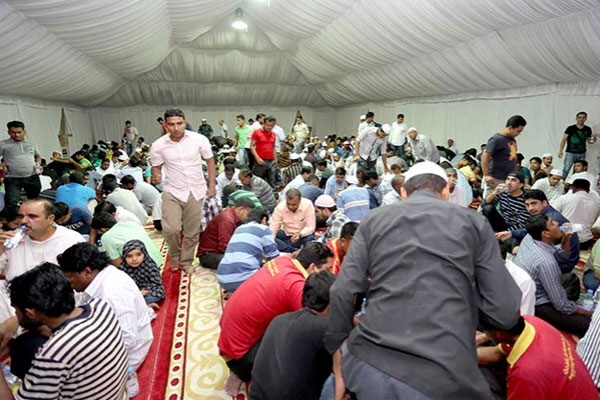

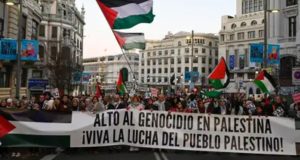


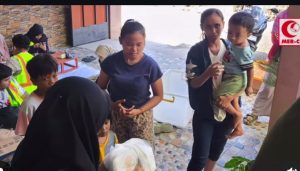


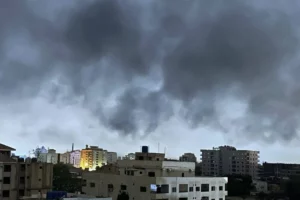

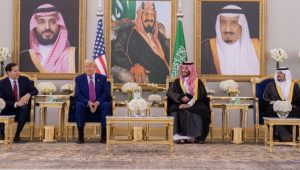
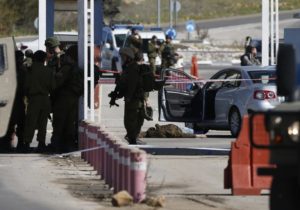
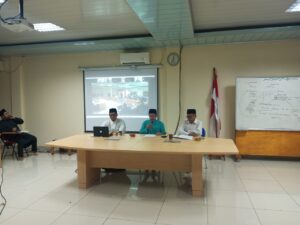
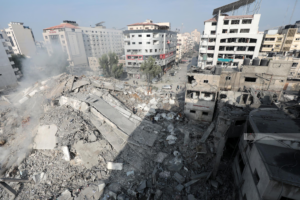
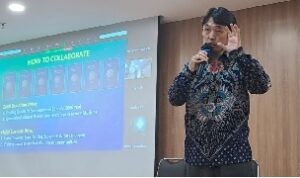












 Mina Indonesia
Mina Indonesia Mina Arabic
Mina Arabic